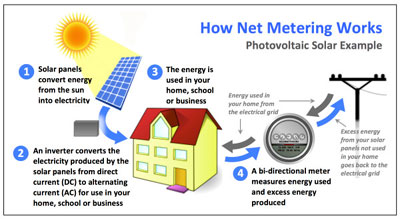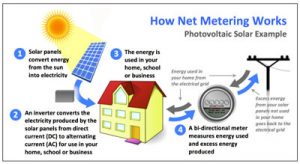With prices for rooftop solar so much lower than just a few years ago, the solar leasing model that propelled the boom in the US – is losing steam. Instead, people want to buy their systems outright.
The cost of rooftop solar has dropped from a luxury car to a an economy car, Computerworld points out – about $15,000 on average. And payback has dropped to 3-5 years.
As of 2014, 72% of residential solar systems are leased from three companies – SolarCity, Vivant Solar and Sunrun, says GTM Research. But by 2020, homeowners will own the majority of solar systems, they predict.
Therefore, solar companies are switching to offer loans for direct purchases. In fact, the solar loan market it exploding, says GTM Research. Over 300,000 Americans will decide to install solar this year.
Net Metering?
Many people want to buy their solar systems so they can realize their full benefits – getting the tax deductions and being paid for any excess electricity they send to the grid, called net metering.
As we have reported, net metering is currently under attack in 27 states by utilities (and ALEC) who don’t want to pay ratepayers for their electricity. They also want to charge solar owners special monthly grid charges.
Utilities’ argument goes like this: solar owners are “free loaders” because they benefit from the grid, but don’t pay for its maintenance. And because they don’t pay, people that don’t own solar systems pay more for the grid.
Studies show the opposite is true. The growth of rooftop solar saves everyone money because utilities don’t have to build more expensive infrastructure – new transmission lines and power plants.
Here’s an example. In March, California’s grid operator announced it would cancel 13 planned transmission projects in PG&E’s territory, saving ratepayers $192 million, Greentech Media reports. It isn’t needed because of a combination of rooftop solar and greater energy efficiency.
California’s Public Utilities Commission is researching how to plan for distributed energy so that utilities know they will have reliable energy and can pull back on infrastructure investments.
In other words, net metering benefits everyone. Here’s a concise review of the many studies on this topic.

